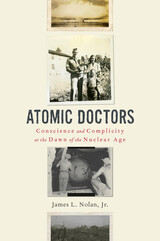
An unflinching examination of the moral and professional dilemmas faced by physicians who took part in the Manhattan Project.
After his father died, James L. Nolan, Jr., took possession of a box of private family materials. To his surprise, the small secret archive contained a treasure trove of information about his grandfather’s role as a doctor in the Manhattan Project. Dr. Nolan, it turned out, had been a significant figure. A talented ob-gyn radiologist, he cared for the scientists on the project, organized safety and evacuation plans for the Trinity test at Alamogordo, escorted the “Little Boy” bomb from Los Alamos to the Pacific Islands, and was one of the first Americans to enter the irradiated ruins of Hiroshima and Nagasaki.
Participation on the project challenged Dr. Nolan’s instincts as a healer. He and his medical colleagues were often conflicted, torn between their duty and desire to win the war and their oaths to protect life. Atomic Doctors follows these physicians as they sought to maximize the health and safety of those exposed to nuclear radiation, all the while serving leaders determined to minimize delays and maintain secrecy. Called upon both to guard against the harmful effects of radiation and to downplay its hazards, doctors struggled with the ethics of ending the deadliest of all wars using the most lethal of all weapons. Their work became a very human drama of ideals, co-optation, and complicity.
A vital and vivid account of a largely unknown chapter in atomic history, Atomic Doctors is a profound meditation on the moral dilemmas that ordinary people face in extraordinary times.
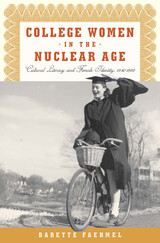
In the popular imagination, American women during the time between the end of World War II and the 1960s—the era of the so-called “feminine mystique”—were ultraconservative and passive. College Women in the Nuclear Age takes a fresh look at these women, showing them actively searching for their place in the world while engaging with the larger intellectual and political movements of the times.
Drawing from the letters and diaries of young women in the Cold War era, Babette Faehmel seeks to restore their unique voices and to chronicle their collective ambitions. She also explores the shifting roles that higher education played in establishing these hopes and dreams, making the case that the GI Bill served to diminish the ambitions of many American women even as it opened opportunities for many American men. A treasure-trove of original research, the book should stimulate scholarly discussion and captivate any reader interested in the thoughts and lives of American women.
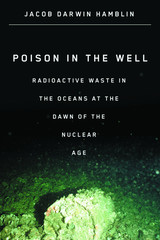
In the early 1990s, Russian President Boris Yeltsin revealed that for the previous thirty years the Soviet Union had dumped vast amounts of dangerous radioactive waste into rivers and seas in blatant violation of international agreements. The disclosure caused outrage throughout the Western world, particularly since officials from the Soviet Union had denounced environmental pollution by the United States and Britain throughout the cold war.
Poison in the Well provides a balanced look at the policy decisions, scientific conflicts, public relations strategies, and the myriad mishaps and subsequent cover-ups that were born out of the dilemma of where to house deadly nuclear materials. Why did scientists and politicians choose the sea for waste disposal? How did negotiations about the uses of the sea change the way scientists, government officials, and ultimately the lay public envisioned the oceans? Jacob Darwin Hamblin traces the development of the issue in Western countries from the end of World War II to the blossoming of the environmental movement in the early 1970s.
This is an important book for students and scholars in the history of science who want to explore a striking case study of the conflicts that so often occur at the intersection of science, politics, and international diplomacy.
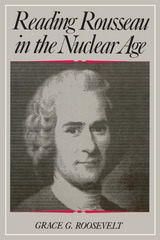
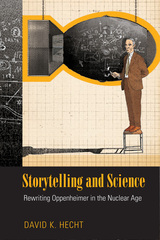
From the outset, accounts of Oppenheimer's life and work were deployed for multiple ends: to trumpet or denigrate the value of science, to settle old scores or advocate new policies, to register dissent or express anxieties. In these different renditions, Oppenheimer was alternately portrayed as hero and villain, establishment figure and principled outsider, "destroyer of worlds" and humanist critic. Yet beneath the varying details of these stories, Hecht discerns important patterns in the way that audiences interpret, and often misinterpret, news about science. In the end, he argues, we find that science itself has surprisingly little to do with how its truths are assimilated by the public. Instead its meaning is shaped by narrative traditions and myths that frame how we think and write about it.

READERS
Browse our collection.
PUBLISHERS
See BiblioVault's publisher services.
STUDENT SERVICES
Files for college accessibility offices.
UChicago Accessibility Resources
home | accessibility | search | about | contact us
BiblioVault ® 2001 - 2024
The University of Chicago Press









